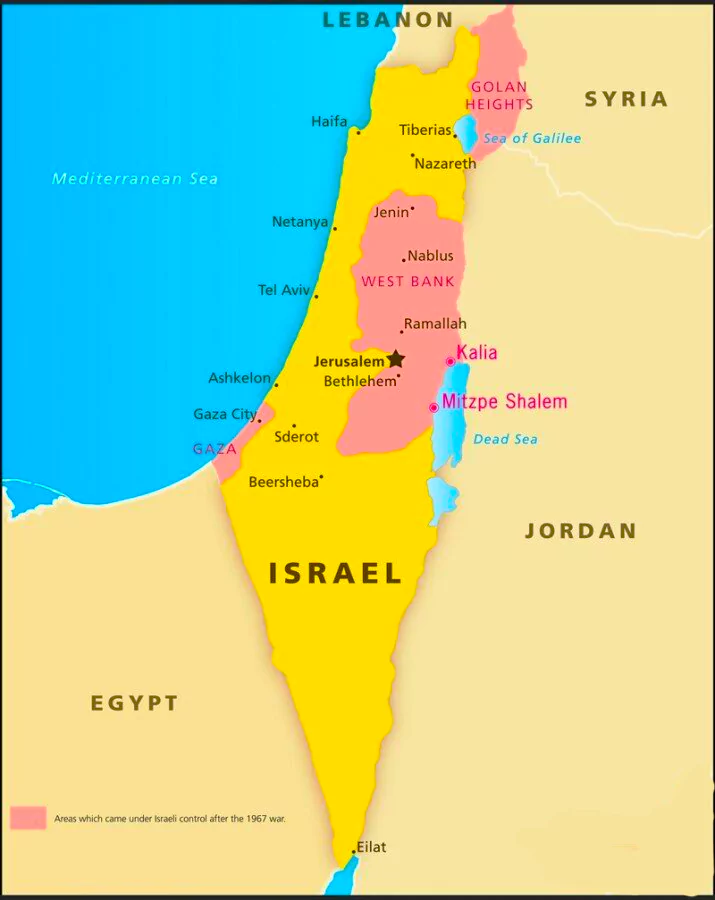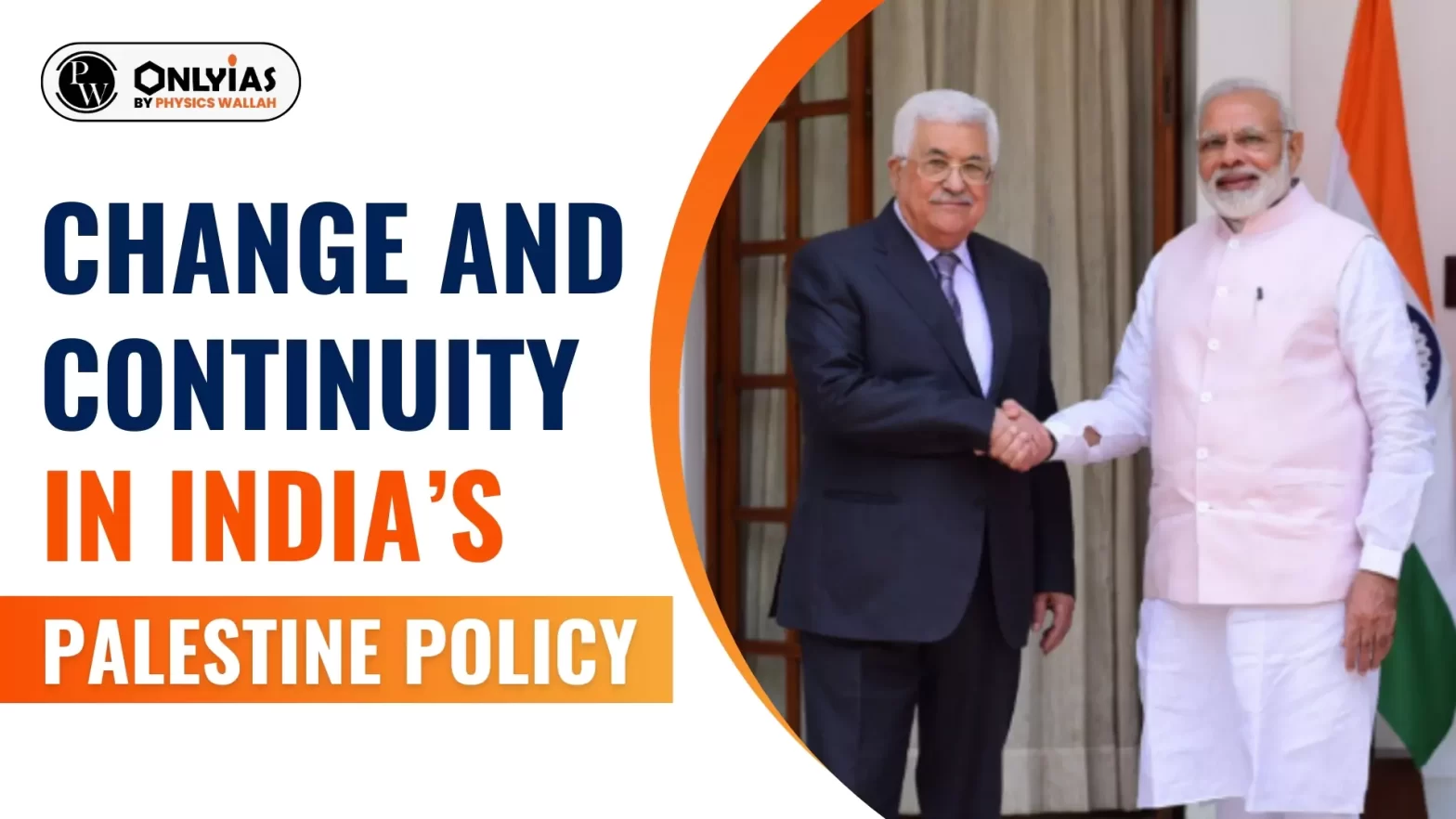Context:
This editorial is based on the news “Change and continuity in India’s Palestine policy” which was published in the Hindu. India’s recent expression of solidarity with Israel during a period of heightened conflict has sparked debate. However, India is a supporter of a Two state solution to end the decades-long Israel Palestine conflict.
Two State Solution
- At its simplest, the two state solution is the idea that the creation of a Palestinian state next to Israel would end the crisis.
- There would be two states on the land between the Jordan River and the Mediterranean Sea.
- The two state solution has become the most widely accepted policy internationally, even as Israelis and Palestinians increasingly see it as an impossibility.
|
India’s Palestine Policy Has Evolved Over the Years

- India’s vote in November, 1947: When the UN General Assembly voted on a resolution to partition Palestine into a Jewish state, an Arab state and an international city (Jerusalem) in November 1947, India, along with Pakistan and the Arab bloc, voted against it.
- Creation of Israel: when the state of Israel was declared in May 1948, India swiftly adopted a pragmatic line and recognised Israel, but stopped short of establishing full diplomatic relations.
- Diplomatic Relations with Israel: After it established full diplomatic relations with Israel in 1992, bilateral ties between New Delhi and Tel Aviv began to deepen and broaden.
- Maintained Support for Palestine: But India publicly maintained its support for the creation of a Palestine state with East Jerusalem as its capital and based on the 1967 borders.
- Recent Position of India: This position has evolved further after Mr. Modi became Prime Minister when he visited Ramallah in the occupied West Bank, he called for dialogue to find a permanent solution to the crisis.
- India not vocal on contentious issue: However, India has not opined vocally about the contentious issues such as the capital and border any more, while remaining a partner of Israel and a supporter of the two state solution.
India’s Formal Position
- Support for Two State Solution: India officially supports the two state solution, envisioning Israel and Palestine as peaceful neighbours coexisting harmoniously.
- unlike the U.S, which claims to be supporting the two-state solution while voting against all resolutions at the UN and refusing to back the ceasefire call.
- Position of Balance: India is neither a strong moral critic, like Brazil or South Africa, of the way Israel is conducting the war, nor a mute spectator or enabler of Israel, like the United States or the United Kingdom.
- India’s Vote shows its stance: India voted in favour of a resolution that condemned Israeli settlements in the occupied Palestinian territories, including East Jerusalem and the occupied Syrian Golan.
- It also supported a resolution that called for “an immediate humanitarian ceasefire”.
- It voted for the Palestinian right to self-determination.
- India aspires to reflect the voice of the Global South: Israel’s current actions in Gaza are seen as a major humanitarian crisis, However, Israel receives significant support from the U.S., allowing it to avoid consequences under international laws.
- This has sparked strong reactions in the Global South, with South Africa taking Israel to the International Court of Justice.
- Brazil’s president accusing Israel of “genocide,” and
- China calls for a ceasefire, while Russia hosts various Palestinian factions, including Hamas.
Conclusion
India wants stability in West Asia, and a permanent solution to the Palestine issue. This aligns with India’s Act West policy, emphasising peace and stability in the region.
Also Read: US Blocks Algerian-Draft Resolution On Gaza At UN
| Prelims PYQ (20):
Mediterranean Sea is a border of which of the following countries?
1. Jordan
2. Iraq
3. Lebanon
4. Syria
Select the correct answer using the code given below:
(a) 1, 2 and 3
(b) 2 and 3 only
(c) 3 and 4 only
(d) 1, 3 and 4 only
Ans: (c) |
![]() 2 Mar 2024
2 Mar 2024

